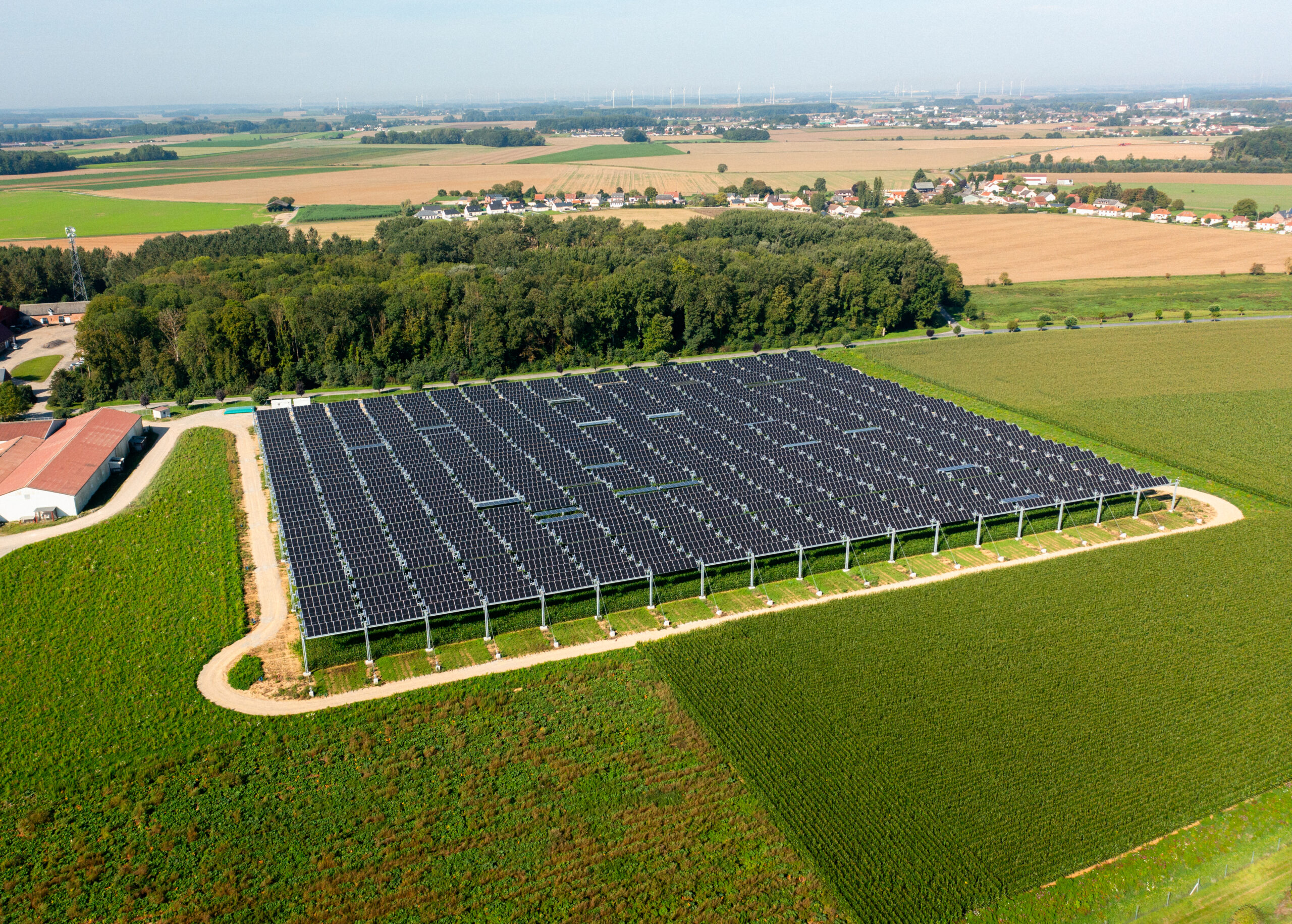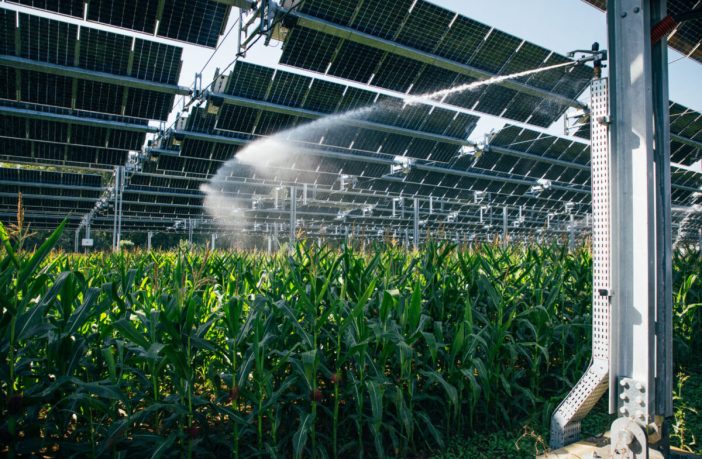- French agrivoltaics specialist TSE has built a 2.9 MW agrivoltaic power plant equipped with an irrigation system intended to improve water management on large crops.
The system, deployed over 3 hectares in Brouchy, Hauts-de-France, is expected to deliver water savings of nearly 30%. Sensors placed on the canopy enable the system to optimize irrigation by watering only when required and providing the appropriate amount of water.
It is equipped with trackers that can rotate the solar panels, positioned at a height of 5 meters, from east to west. This equipment generates partial and rotating shading on the plot throughout the day, effectively mitigating thermal and water stress, as reported by TSE.
“On the plot, the plants have particularly suffered from thermal and water stress in recent years, with strong thermal amplitudes and especially long periods without water which have impacted plant growth and yields, particularly in wheat and potatoes,” said Benoît Bougler, the farmer at the site. “I was looking for solutions to adapt to climate change and irrigated agrivoltaics is one of the possible answers.”

France’s National Research Institute for Agriculture, Food, and the Environment (INRAE) will collaborate with Bougler and TSE to conduct agronomic trials on various crops, including soybeans, wheat, fodder rye, winter barley, and rapeseed, over a period of nine years. These trials will involve comparing the results with those obtained from a reference parcel that lacks the PV installation.
The local Chamber of Agriculture will also assess the agrivoltaic facility and its irrigation system’s impact on water resources. For non-irrigated crops, the trial will focus on the shading effects generated by the agricultural canopy, addressing water stress and reduced evapotranspiration. In the case of irrigated crops, the trial will explore potential irrigation savings facilitated by the PV system and intelligent irrigation.
The PV plant operates under a 20-year PPA to supply electricity for the factories of a local company, bioMérieux.
Author: Gwénaëlle Deboutte
This article was originally published in pv magazine and is republished with permission.















